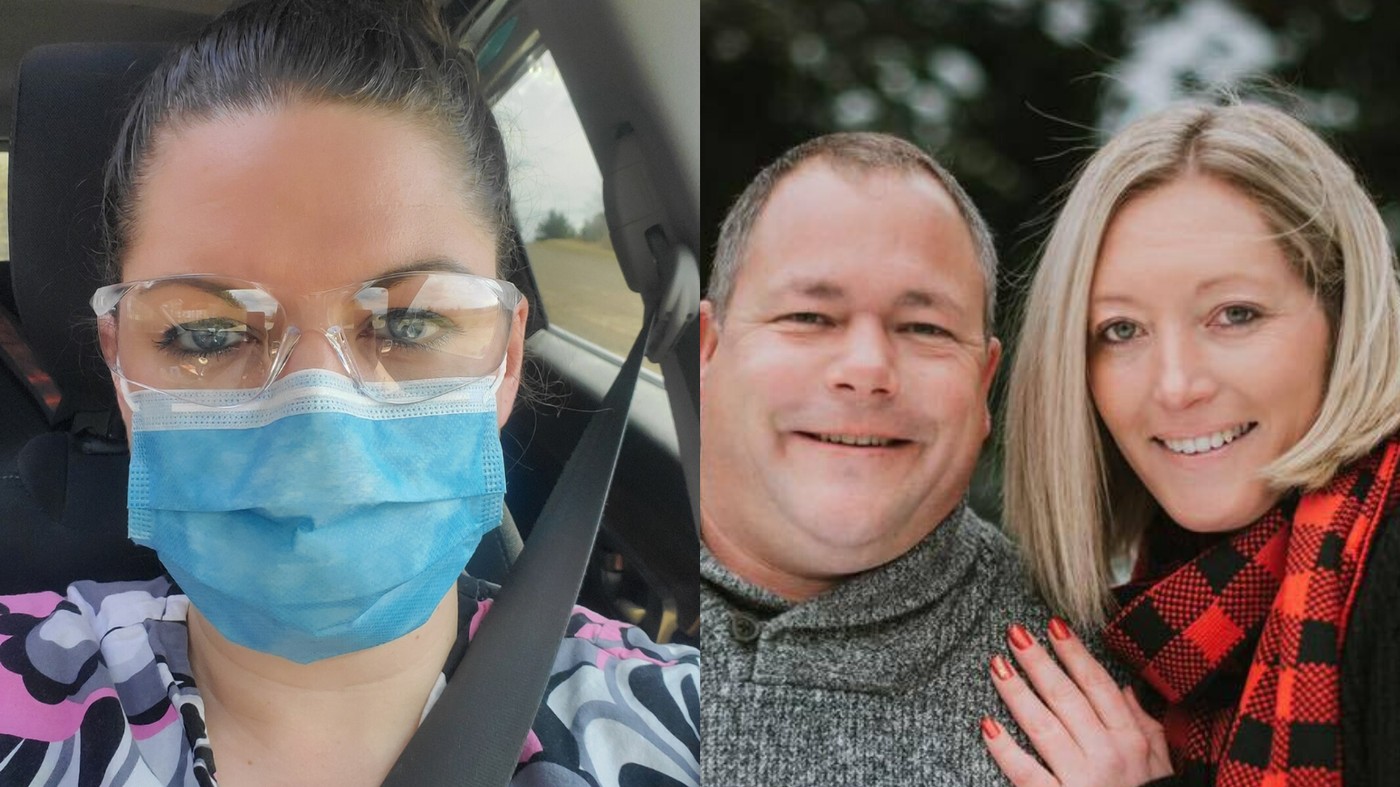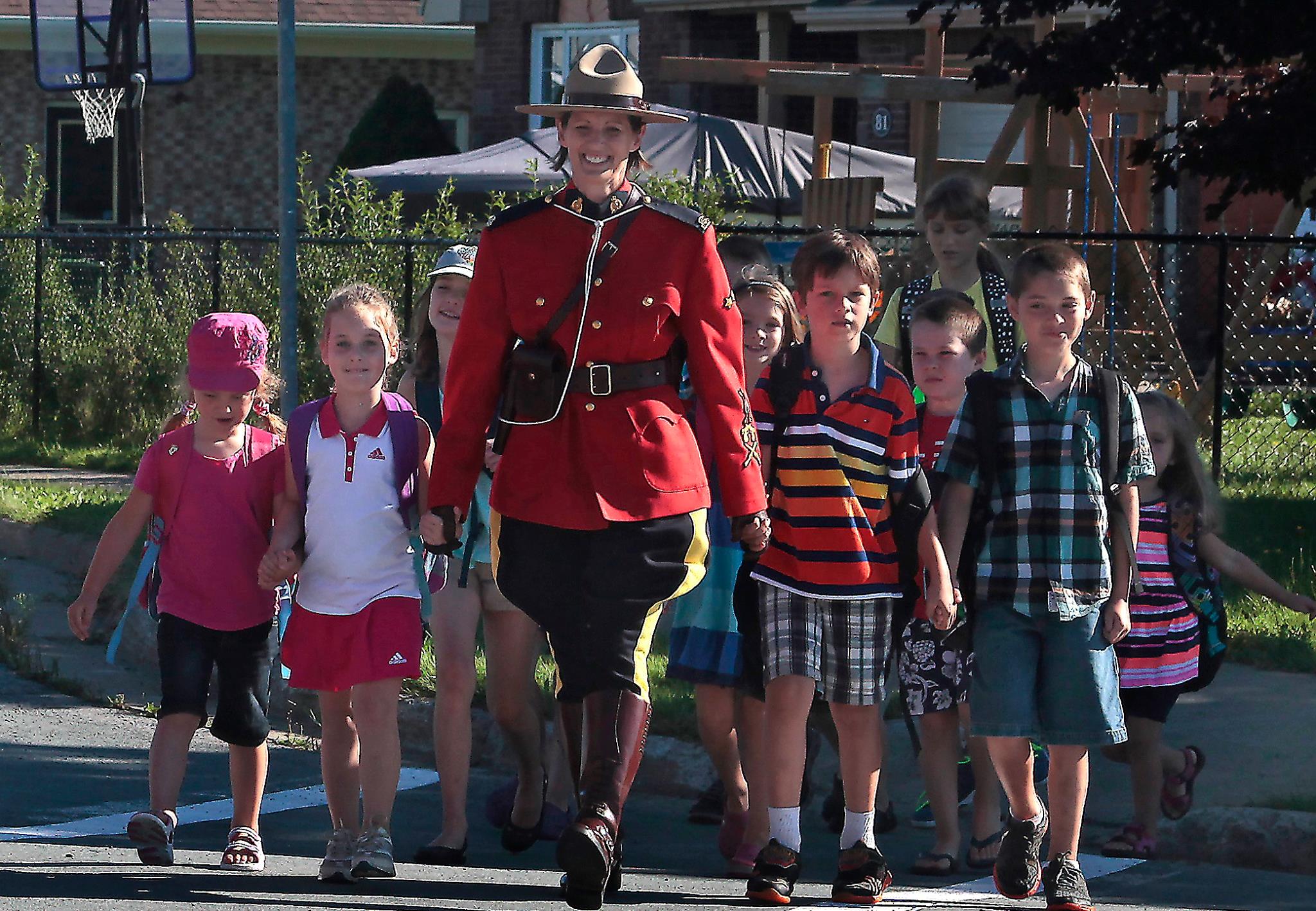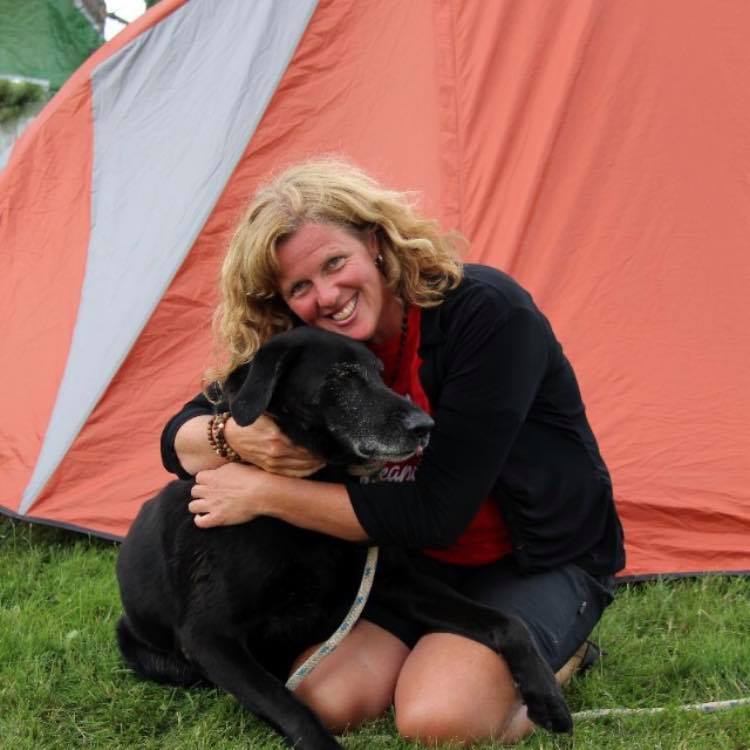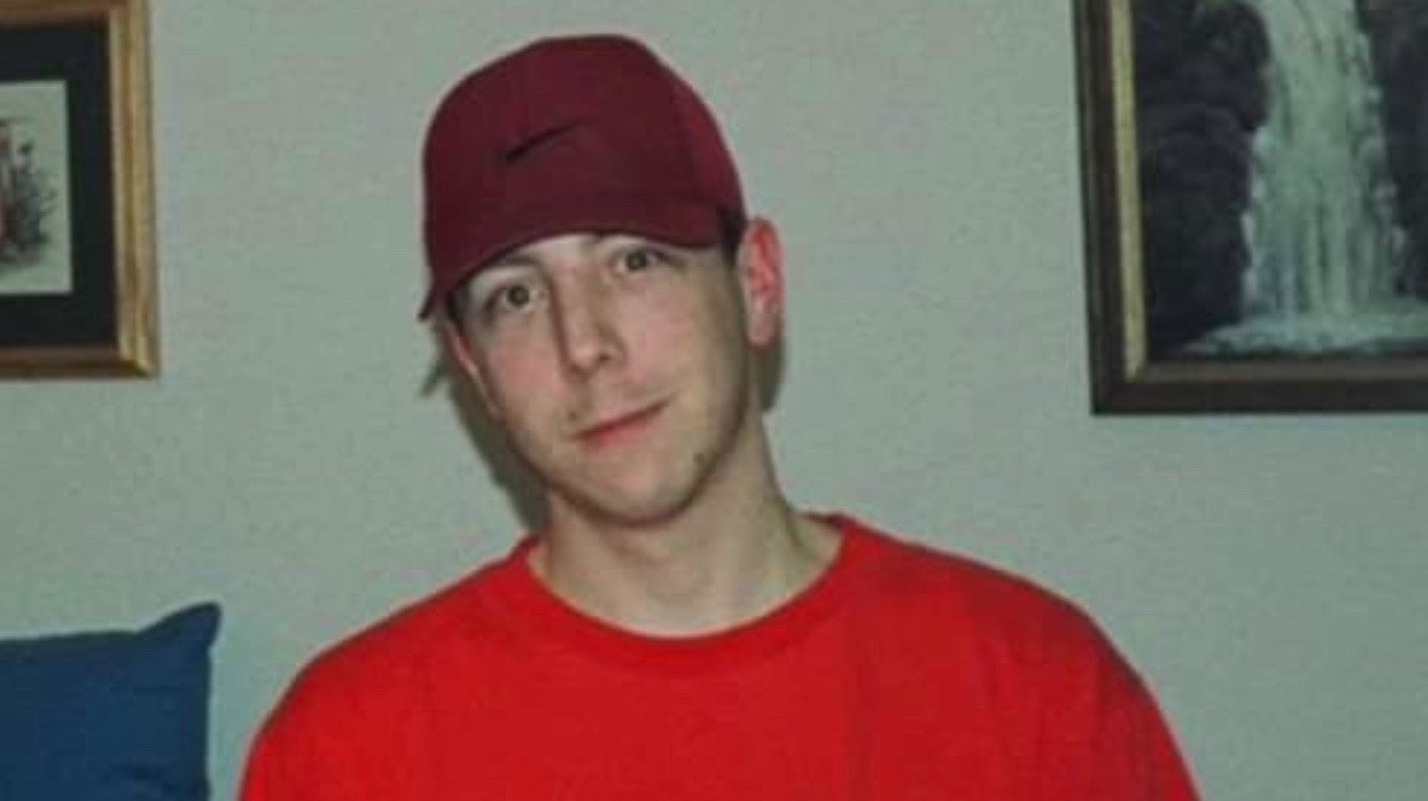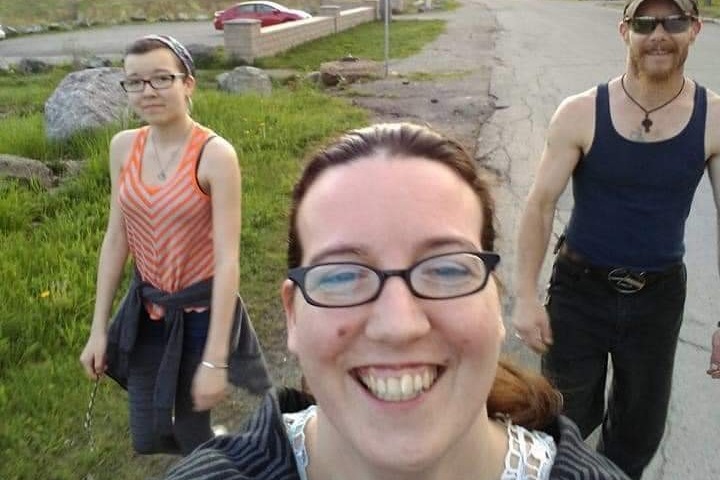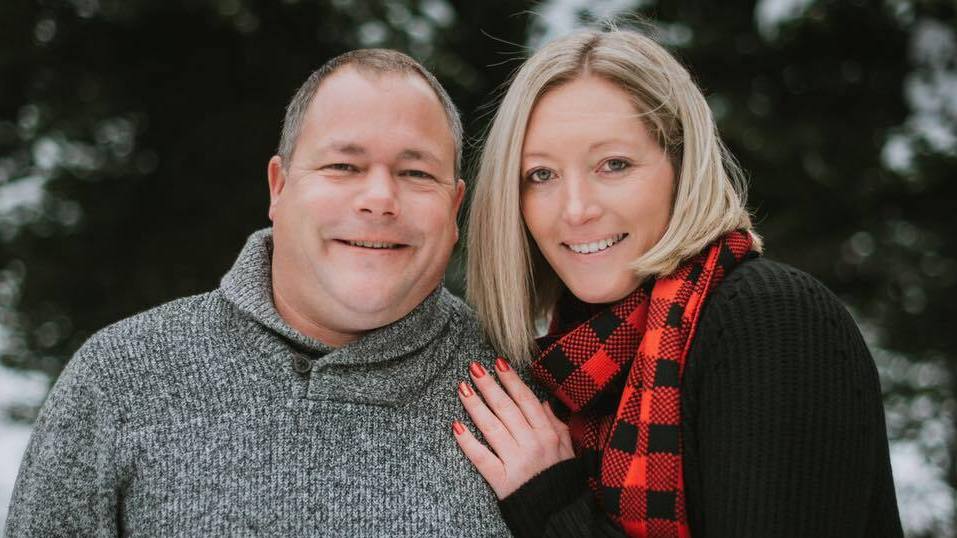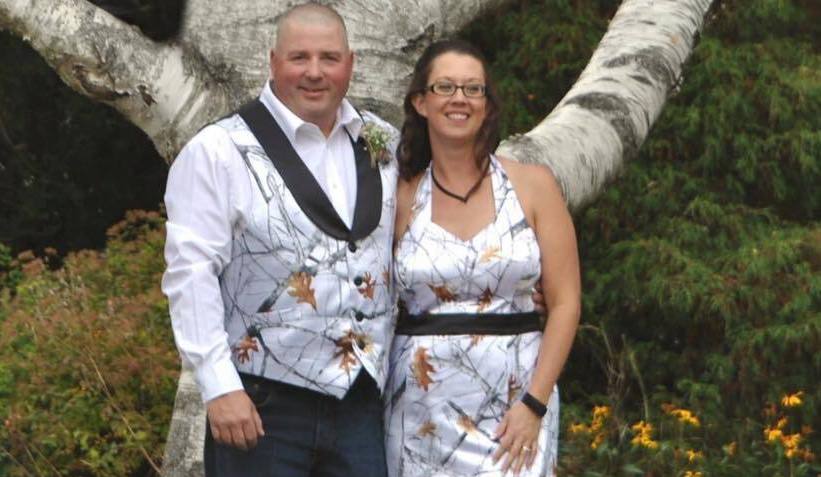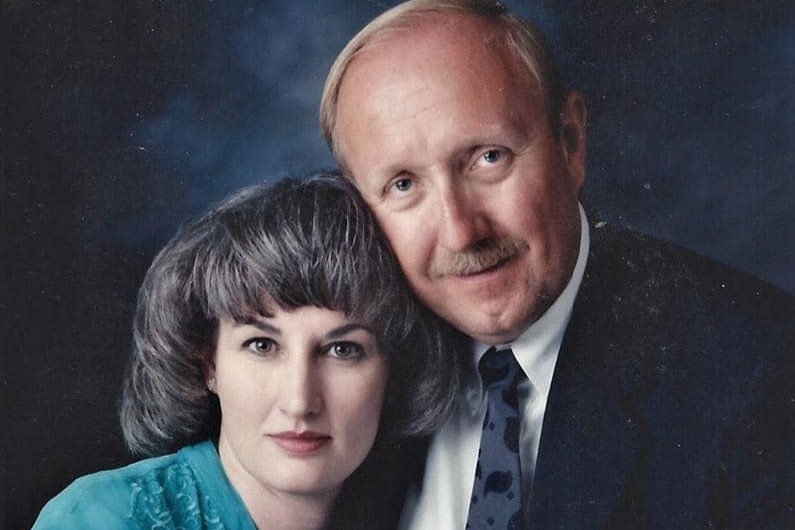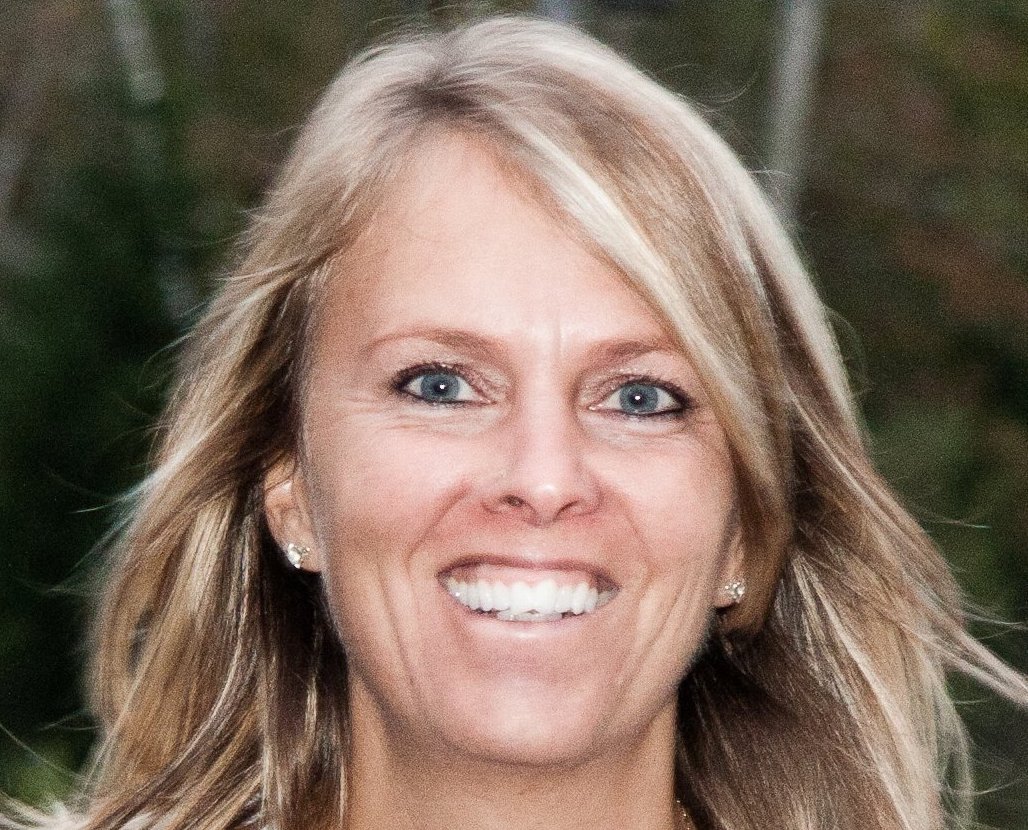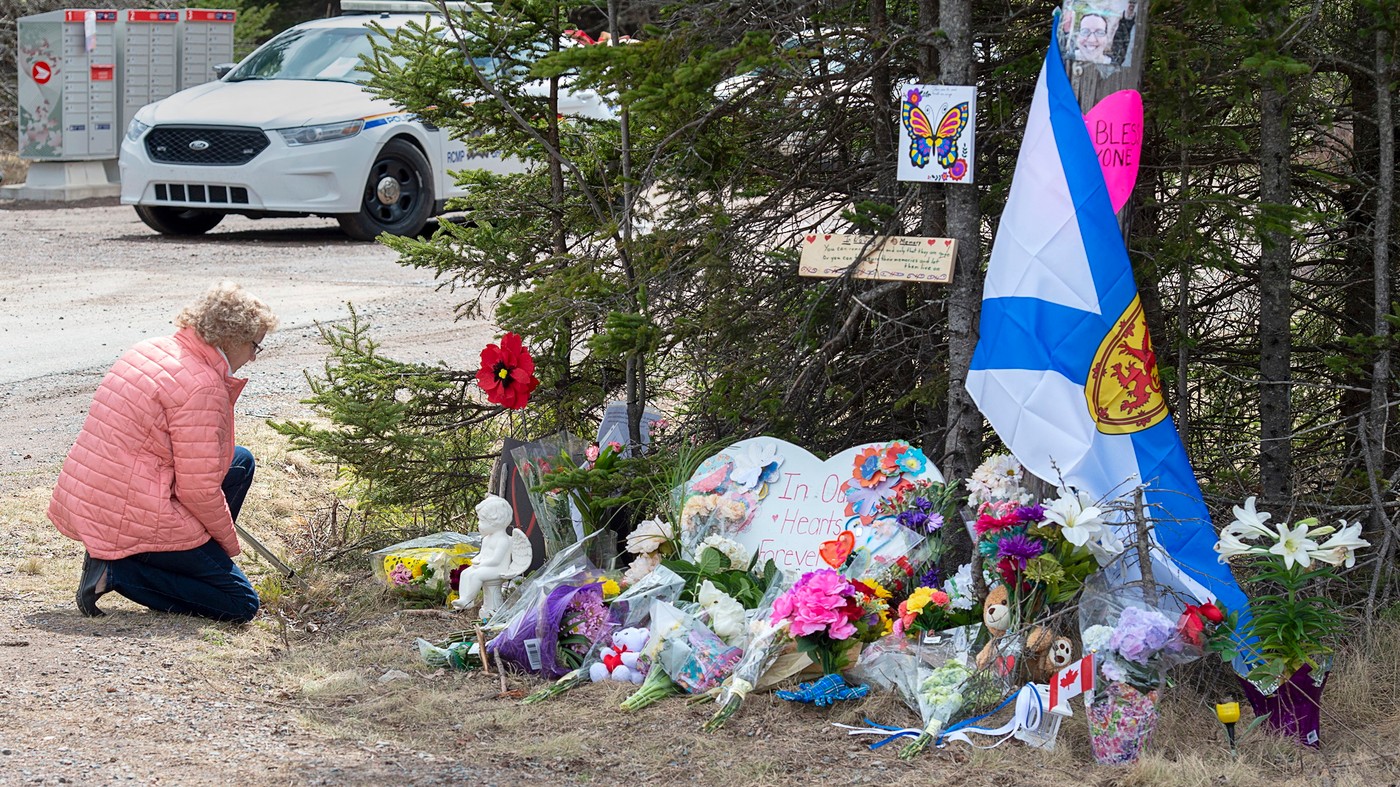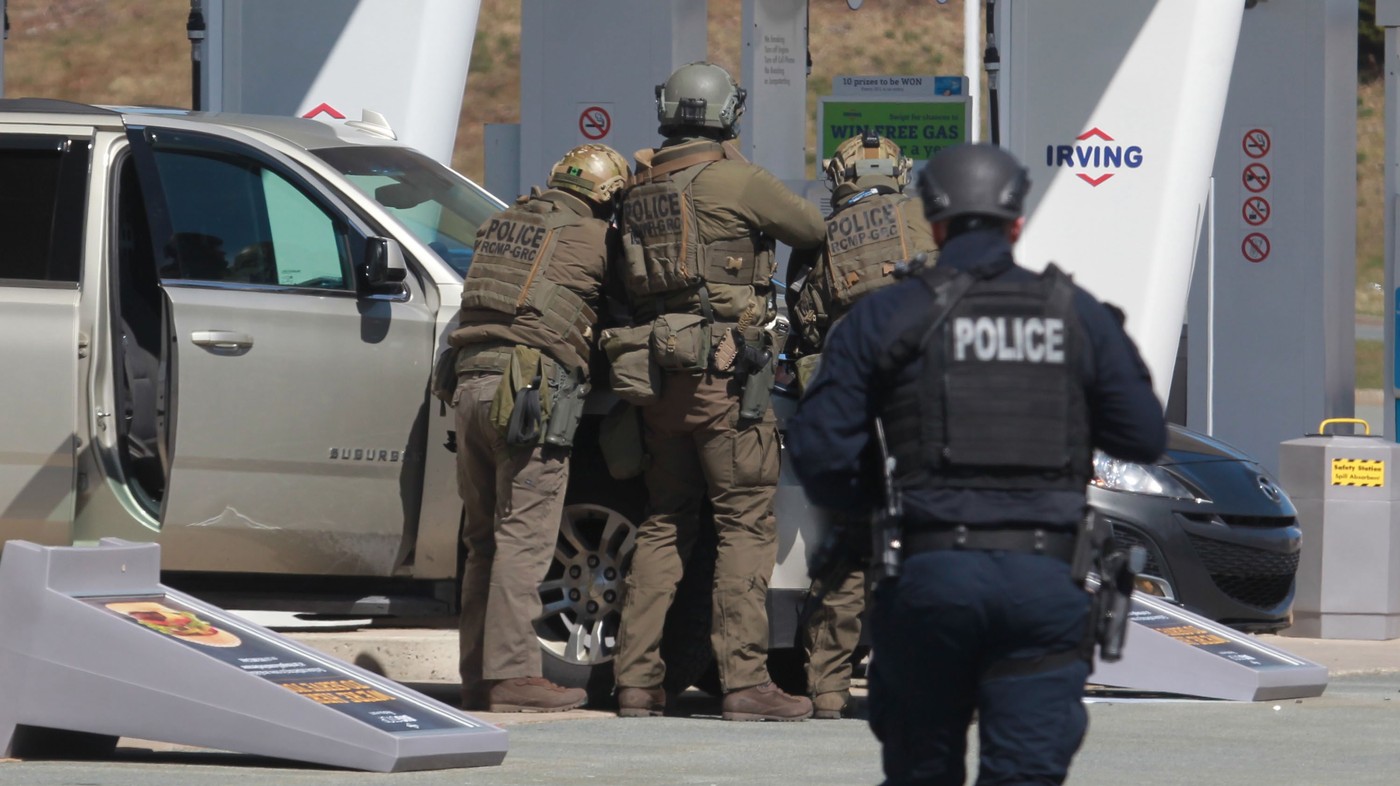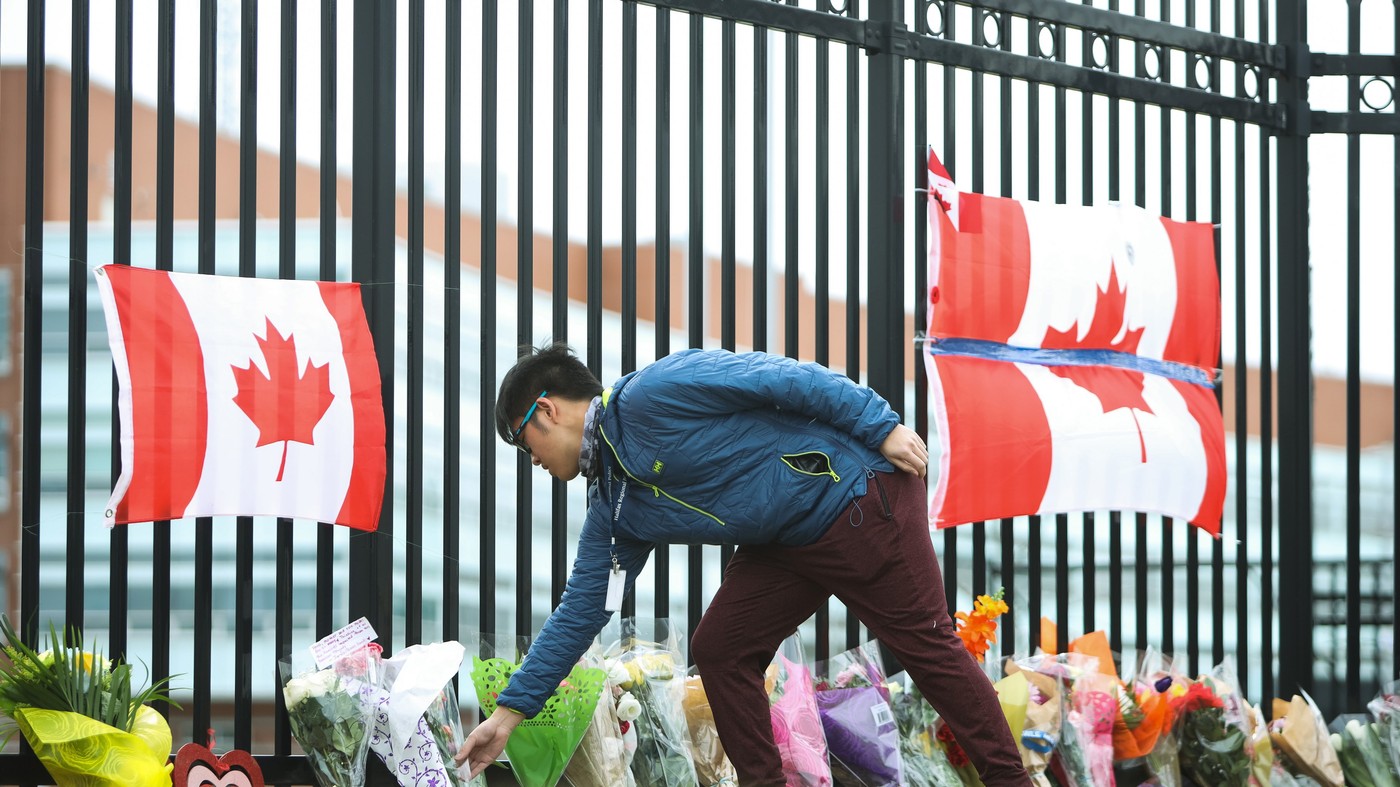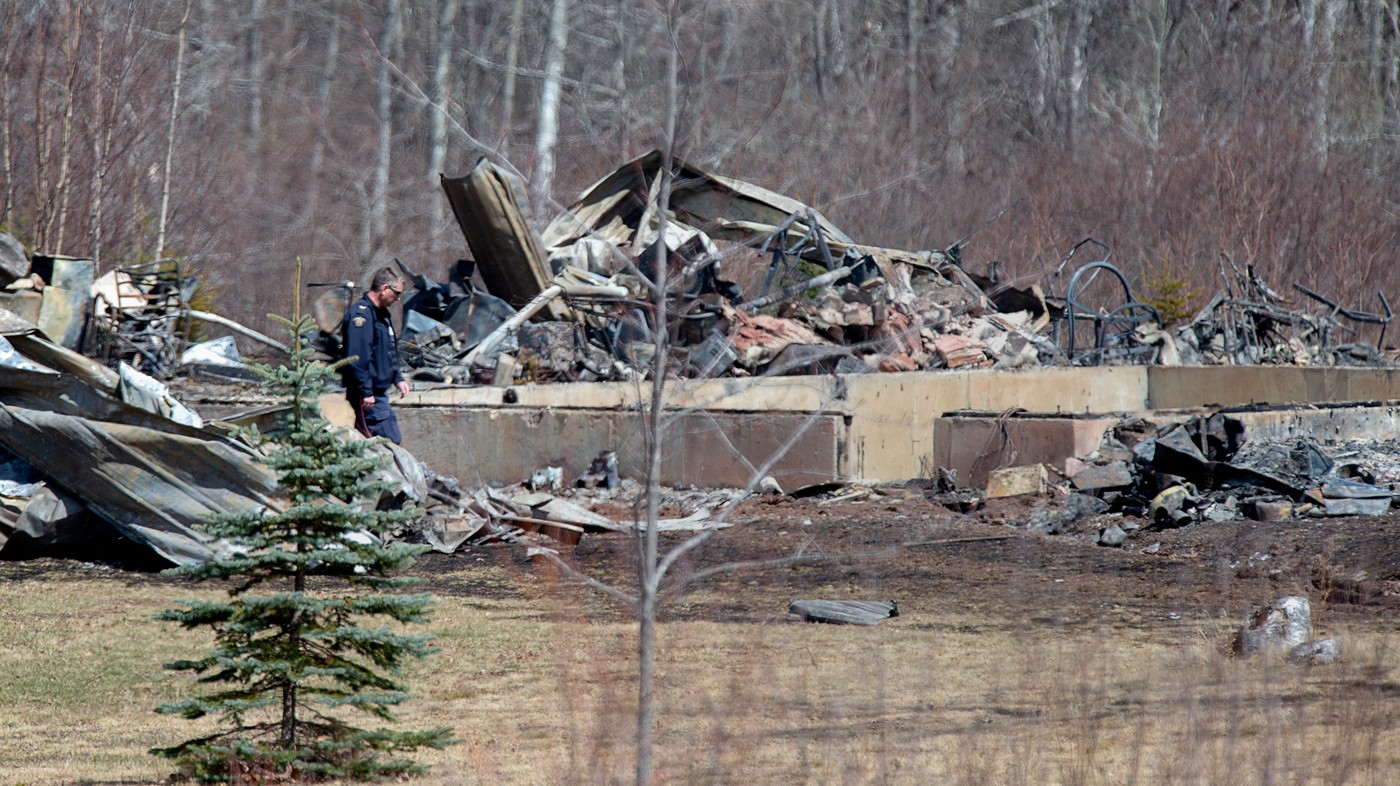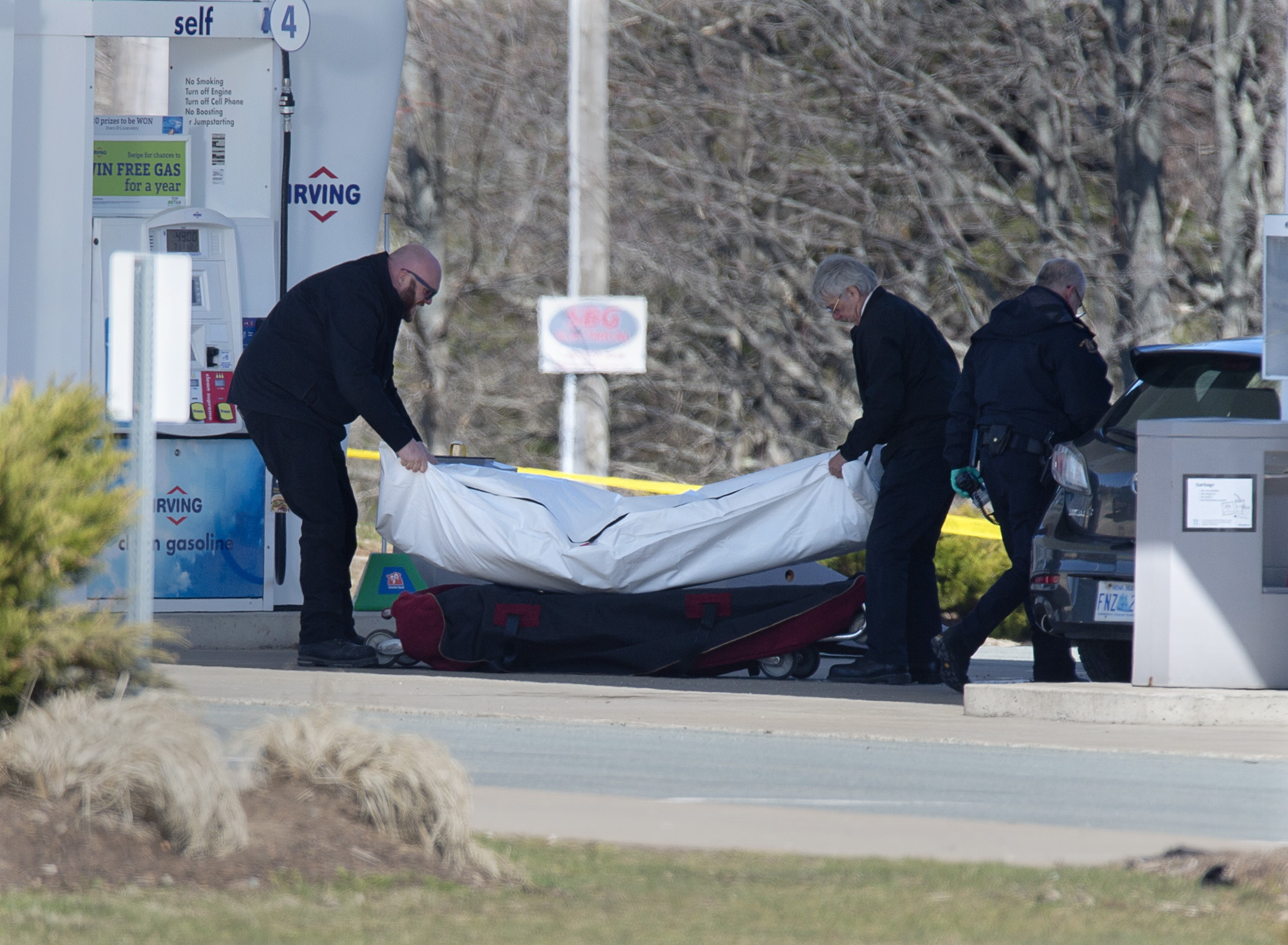MONTREAL — Scaled-back ceremonies and pandemic-muted tributes did little to mask the raw emotion of those who gathered on Sunday to commemorate the 31st anniversary of a misogyny-motivated shooting at Montreal's Ecole Polytechnique

© Provided by The Canadian Press
Survivors and activists held sombre, physically distanced events to mark the occasion and redouble their calls for more urgent action on the long-standing issue of violence against women.
Nathalie Provost remembers holding classmate Nathalie Croteau's hand that day when a gunman motivated by a hatred of feminists opened fire on campus, killing 14 women and injuring a dozen other people.
“When it happened, we were there, side-by-side. Barbara [Klucznik-Widajewicz], too,” said Provost, who was shot four times in the attack on December 6, 1989.
Croteau and Klucznik-Widajewicz were among the day's victims, many of them engineering students, who were killed during the massacre.
“For me, they aren't just names," Provost said on Sunday during a small gathering to remember the women in a Montreal park named in their honour.
Even 31 years after they were killed, Provost said there can be no quiet mourning for the dead while the fight to prevent violence against women takes on increasing urgency.
"As a society, we still have struggles to lead that are too important," she said.
The Polytechnique killings are commemorated annually, but this year's events have been scaled down significantly due to the COVID-19 pandemic. The event in the park was streamed online.
Canada has designated Dec. 6 as the National Day of Remembrance and Action on Violence Against Women, a chance to mourn and demand concrete policies to protect women across the country.
Prime Minister Justin Trudeau issued a statement describing the Polytechnique massacre as "a tragic and senseless act of violence" that cut short the promising lives of "daughters, sisters and friends."
"We still have a lot of work to do to ensure that they can live without injustice, without misogyny, and without fear," he said.
Quebec Premier Francois Legault said all Quebecers remembered the tragedy.
"We have a duty to remember, but also a duty to act," he tweeted.
Sunday's events marked the culmination of 12 days of action organized by Quebec-based activists and community groups bent on combatting violence against women.
At Sunday afternoon's event, Sue Montgomery, the mayor of the Montreal borough where the park is located, said she had to fight to have the Polytechnique attack recognized as an act of femicide.
Last year, the language of a commemorative plaque in the park, known as Place du 6-decembre-1989, was changed to describe the events as an "antifeminist attack."
"These 14 human beings, these 14 women, were killed because they’re women," Montgomery said. "Because they had dreams, because they dared to dream to have careers and to make a difference in this world."
Several speakers also stressed the importance of combatting violence against marginalized women, including those identifying as Indigenous, disabled or as members of the LGBTQ community.
Jessica Quijano of the Native Women's Shelter of Montreal said she could not name all the Indigenous women who have died in the city because the list is so long.
"My heart is so broken," she said.
Quijano called for government action to address the high rates of violence and systemic racism in provincial institutions that she said Indigenous women face as a matter of course.
"What is it going to take for our politicians to actually listen to the voices of Indigenous women and women … who have been talking about these issues for decades?" she said.
Marlihan Lopez, vice-president of the Federation des femmes du Quebec, echoed the sentiment and called for deeper understanding of how systemic racism contributes to gender-based violence.
"If we can't recognize what it is, we can't combat it," she said. "If we can't combat it, we won't be able to move forward in the fight against violence against women."
The sober, early-afternoon ceremony was not the only commemorative event set to honour the anniversary.
Fourteen beams of light, representing each of the Polytechnique victims, were projected into the sky from a lookout on Mount Royal on Sunday evening.
Montreal Mayor Valerie Plante, Polytechnique director Philippe Tanguy, and the sister of one of the victims, Catherine Bergeron, planned to lay a wreath of roses. Plante also encouraged local residents to light a candle in memory of the victims.
This report by The Canadian Press was first published Dec. 6, 2020.
Jillian Kestler-D'Amours, The Canadian Press
Survivors and activists held sombre, physically distanced events to mark the occasion and redouble their calls for more urgent action on the long-standing issue of violence against women.
Nathalie Provost remembers holding classmate Nathalie Croteau's hand that day when a gunman motivated by a hatred of feminists opened fire on campus, killing 14 women and injuring a dozen other people.
“When it happened, we were there, side-by-side. Barbara [Klucznik-Widajewicz], too,” said Provost, who was shot four times in the attack on December 6, 1989.
Croteau and Klucznik-Widajewicz were among the day's victims, many of them engineering students, who were killed during the massacre.
“For me, they aren't just names," Provost said on Sunday during a small gathering to remember the women in a Montreal park named in their honour.
Even 31 years after they were killed, Provost said there can be no quiet mourning for the dead while the fight to prevent violence against women takes on increasing urgency.
"As a society, we still have struggles to lead that are too important," she said.
The Polytechnique killings are commemorated annually, but this year's events have been scaled down significantly due to the COVID-19 pandemic. The event in the park was streamed online.
Canada has designated Dec. 6 as the National Day of Remembrance and Action on Violence Against Women, a chance to mourn and demand concrete policies to protect women across the country.
Prime Minister Justin Trudeau issued a statement describing the Polytechnique massacre as "a tragic and senseless act of violence" that cut short the promising lives of "daughters, sisters and friends."
"We still have a lot of work to do to ensure that they can live without injustice, without misogyny, and without fear," he said.
Quebec Premier Francois Legault said all Quebecers remembered the tragedy.
"We have a duty to remember, but also a duty to act," he tweeted.
Sunday's events marked the culmination of 12 days of action organized by Quebec-based activists and community groups bent on combatting violence against women.
At Sunday afternoon's event, Sue Montgomery, the mayor of the Montreal borough where the park is located, said she had to fight to have the Polytechnique attack recognized as an act of femicide.
Last year, the language of a commemorative plaque in the park, known as Place du 6-decembre-1989, was changed to describe the events as an "antifeminist attack."
"These 14 human beings, these 14 women, were killed because they’re women," Montgomery said. "Because they had dreams, because they dared to dream to have careers and to make a difference in this world."
Several speakers also stressed the importance of combatting violence against marginalized women, including those identifying as Indigenous, disabled or as members of the LGBTQ community.
Jessica Quijano of the Native Women's Shelter of Montreal said she could not name all the Indigenous women who have died in the city because the list is so long.
"My heart is so broken," she said.
Quijano called for government action to address the high rates of violence and systemic racism in provincial institutions that she said Indigenous women face as a matter of course.
"What is it going to take for our politicians to actually listen to the voices of Indigenous women and women … who have been talking about these issues for decades?" she said.
Marlihan Lopez, vice-president of the Federation des femmes du Quebec, echoed the sentiment and called for deeper understanding of how systemic racism contributes to gender-based violence.
"If we can't recognize what it is, we can't combat it," she said. "If we can't combat it, we won't be able to move forward in the fight against violence against women."
The sober, early-afternoon ceremony was not the only commemorative event set to honour the anniversary.
Fourteen beams of light, representing each of the Polytechnique victims, were projected into the sky from a lookout on Mount Royal on Sunday evening.
Montreal Mayor Valerie Plante, Polytechnique director Philippe Tanguy, and the sister of one of the victims, Catherine Bergeron, planned to lay a wreath of roses. Plante also encouraged local residents to light a candle in memory of the victims.
This report by The Canadian Press was first published Dec. 6, 2020.
Jillian Kestler-D'Amours, The Canadian Press





